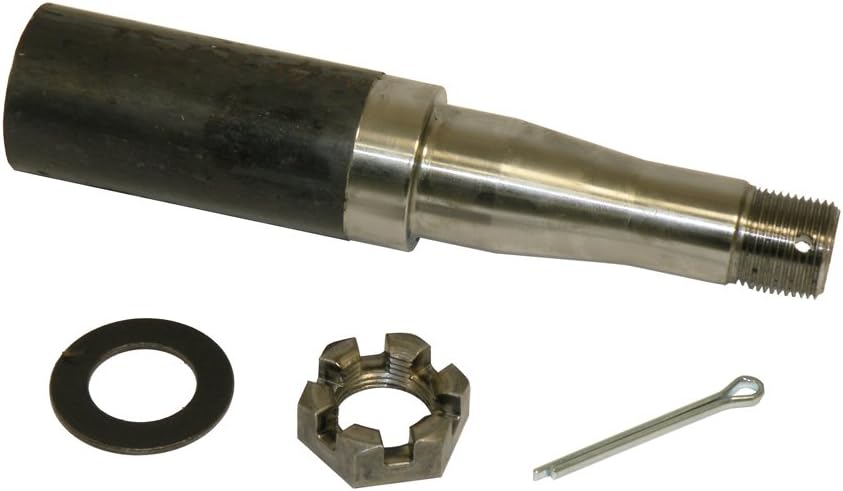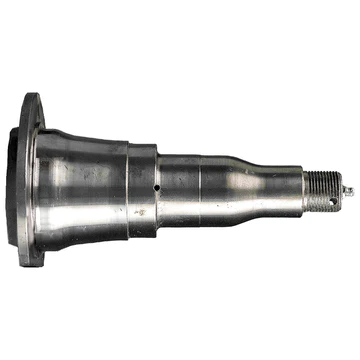Product Description
OEM Customized Forging boat Trailer parts travel trailer accessories Trailer spindle torsion arm
|
item |
value |
|
Place of CHINAMFG |
China |
|
Province |
ZheJiang |
|
Model Number |
Customized Services |
|
Process |
Mainly Hot forging, Some parts with Cold forging ,die forging and Free forgin will be OK |
|
Material |
Carbon steel: CM490,A36,1045,1035 etc., Alloy steel: 40Cr, 20CrMnTi, 20CrNiMo, 42CrMo4 etc., Stainless steel, SS304,SS316 etc. |
|
Weight |
1kg – 120kg |
|
Applicable Machining Process |
CNC Machining/ Lathing/ Milling/ Turning/ Boring/ Drilling/ Tapping/ Broaching/Reaming etc. |
|
Machining Tolerance |
0.03mm-0.1mm |
|
Applicable Finish Surface Treatment |
Shot/sand blast, polishing, Surface passivation, Primer Painting , Powder coating, ED- Coating, Chromate Plating, zinc-plate, Dacromat coating, Finish Painting, |
|
Testing equipment |
Supersonic inspection machine, Supersonic flaw detecting machine , physics and chemical analysis. |
|
MOQ of mass production |
1000-5000pcs |
|
Testing equipment |
Optical Spectrum Analyzer,tensile testing machine,impact testing machine,fluorescent magnetic particle detector,hardness tester,ultrasonic flaw detector..etc. |
|
Packing |
Wooden cases or according to customers’ needs |
1. who are we?
We are based in ZheJiang , China, start from 2571,sell to North America(10.00%),South America(10.00%),Southeast
Asia(10.00%),Africa(10.00%),Mid East(10.00%),Eastern Asia(10.00%),Central America(10.00%),Northern Europe(10.00%),South
Asia(10.00%),Domestic Market(10.00%). There are total about 11-50 people in our office.
2. how can we guarantee quality?
Always a pre-production sample before mass production;
Always final Inspection before shipment;
3.what can you buy from us?
semi trailer axles, air suspensions , chamber,wheel ,slack adjuster and other related items.
4. why should you buy from us not from other suppliers?
We have a trailer parts production more than 10 years the supply chain
5. what services can we provide?
Accepted Delivery Terms: FOB,CIF,EXW;
Accepted Payment Currency:USD,EUR,JPY,CAD,AUD,HKD,GBP,CNY,CHF;
Accepted Payment Type: T/T;
Language Spoken:English,Chinese
6.what is the certificate
At present, the company can undertake CCS, ABS, BV, GL and other certification products /* January 22, 2571 19:08:37 */!function(){function s(e,r){var a,o={};try{e&&e.split(“,”).forEach(function(e,t){e&&(a=e.match(/(.*?):(.*)$/))&&1
| After-sales Service: | Available |
|---|---|
| Condition: | New |
| Application: | Trailer |
| Certification: | ASTM, CE, DIN, ISO |
| Material: | Steel |
| Transport Package: | Customized |
| Customization: |
Available
|
|
|---|

What are the signs that indicate a need for trailer spindle replacement or maintenance, and how can they be diagnosed?
Proper maintenance and timely replacement of trailer spindles are essential for safe towing. Here’s a detailed explanation of the signs that indicate a need for spindle replacement or maintenance and how they can be diagnosed:
- 1. Excessive Play or Movement: If you notice excessive play or movement in the trailer wheels when jacked up or during towing, it may indicate worn-out or damaged spindles. To diagnose this, you can grasp the tire at the top and bottom and try to wiggle it. Excessive movement or play indicates a potential issue with the spindles that requires inspection and possible replacement.
- 2. Abnormal Noises: Unusual noises, such as grinding, squeaking, or rumbling sounds, coming from the trailer wheels while in motion can be a sign of spindle problems. These noises may indicate worn-out bearings, insufficient lubrication, or misaligned spindles. To diagnose the issue, you can listen for any unusual noises while towing or rotating the trailer wheels by hand. If abnormal sounds are present, it is recommended to inspect the spindles and bearings for damage or wear.
- 3. Irregular Tire Wear: Pay attention to the tire wear patterns on the trailer. If you notice uneven or abnormal tire wear, such as cupping, feathering, or bald spots, it could be an indication of misaligned or damaged spindles. To diagnose this, visually inspect the tires for any signs of uneven wear and check for any underlying issues with the spindles or suspension system.
- 4. Excessive Heat: Overheating of the trailer spindles can be a sign of bearing or lubrication problems. If you feel excessive heat when touching the spindle after a tow, it may indicate inadequate lubrication, worn-out bearings, or other issues. To diagnose this, carefully touch the spindles after towing and check for any unusual heat levels. If the spindles feel excessively hot, it is advisable to inspect and address the cause promptly.
- 5. Leaking or Contaminated Grease: Grease leakage or contamination around the spindle area can indicate a problem with the bearings or the spindle seal. Inspect the spindles for any signs of grease leaks or contamination. Excessive grease buildup or the presence of water or debris in the grease may indicate a need for spindle maintenance or bearing replacement.
- 6. Visual Inspection: Regular visual inspection of the spindles is crucial for identifying any visible signs of damage, corrosion, or wear. Look for cracks, fractures, or deformities in the spindle structure. Inspect the spindle surface for signs of rust or corrosion that can weaken the spindle’s integrity. Additionally, check for any loose or missing components, such as nuts or bolts, that secure the spindle to the trailer frame.
- 7. Professional Inspection: If you are uncertain about the condition of the trailer spindles or if you notice any of the aforementioned signs, it is advisable to seek a professional inspection. A qualified mechanic or trailer specialist can perform a thorough examination of the spindles, bearings, and associated components to accurately diagnose any issues and recommend appropriate maintenance or replacement.
Proactive monitoring, regular inspection, and prompt diagnosis of any signs indicating a need for trailer spindle replacement or maintenance are crucial for maintaining safe towing conditions. It is important to address spindle issues promptly to prevent further damage, ensure optimal performance, and minimize the risk of accidents or failures during towing.

Can trailer spindles be customized for specific trailer types or load capacities?
Yes, trailer spindles can be customized to meet the specific requirements of different trailer types or load capacities. Here’s a detailed explanation:
Trailer spindles are available in various sizes, configurations, and materials to accommodate different trailer types and load capacities. Manufacturers offer a range of spindle options designed to meet specific application needs.
- Trailer Types:
Trailer spindles can be customized to suit different trailer types such as utility trailers, boat trailers, RV trailers, horse trailers, and more. Each trailer type may have unique requirements in terms of load capacity, axle configuration, wheel size, and operating conditions. Customized spindles are designed to fit the specific dimensions and specifications of the trailer type.
- Load Capacities:
Trailer spindles can be customized to handle varying load capacities. The load capacity of a trailer is determined by factors such as the trailer’s construction, axle rating, suspension system, and intended use. Customized spindles can be engineered to accommodate the specific load capacity requirements, ensuring that they are robust enough to handle the expected weight without compromising safety or performance.
- Materials and Construction:
Trailer spindles can be customized based on the materials used and their construction. Different materials, such as steel or aluminum, may be chosen depending on factors such as strength, weight, and corrosion resistance. Customized spindles can be manufactured using specific materials and construction techniques to meet the desired performance characteristics and environmental considerations.
- Braking Systems:
Customized trailer spindles can be designed to accommodate specific braking systems. Some trailers may require spindles with integrated brake provisions or compatibility with specific brake assemblies, such as hydraulic or electric brakes. Customization ensures that the spindles are properly configured to work in conjunction with the trailer’s braking system, enhancing safety and control during towing.
- Manufacturer Recommendations:
When customizing trailer spindles, it is important to consider the manufacturer’s recommendations or specifications. The trailer manufacturer can provide guidance on the suitable spindle options based on the trailer model, intended use, and performance requirements. Following the manufacturer’s recommendations ensures compatibility and adherence to warranty and safety standards.
It’s worth noting that while customization options are available, it is essential to work with reputable manufacturers or suppliers with expertise in trailer components. They can provide guidance, technical support, and ensure that the customized spindles meet the necessary quality and safety standards.
In summary, trailer spindles can be customized to match specific trailer types or load capacities. Customization allows for the selection of spindles that are tailored to the trailer’s requirements in terms of load capacity, materials, construction, and braking systems. By considering manufacturer recommendations and working with trusted suppliers, customized spindles can be obtained to ensure optimal performance, safety, and compatibility with the trailer.

What are the different types and sizes of trailer spindles available in the market?
Trailer spindles come in various types and sizes to accommodate different trailer configurations and towing requirements. Here’s a detailed explanation of the different types and sizes of trailer spindles available in the market:
- Straight Spindle:
The straight spindle is the most common type of trailer spindle. It features a straight design without any taper. These spindles are typically used in trailers that require a simple and straightforward wheel attachment.
- Tapered Spindle:
Tapered spindles have a tapered shape, with the diameter gradually decreasing from the base towards the end. The taper allows for a secure and tight fit when the spindle is inserted into the wheel hub assembly. Tapered spindles are widely used in trailers and provide enhanced stability by minimizing the potential for wheel detachment.
- Parallel Spindle:
Parallel spindles have a consistent diameter throughout their length and do not feature a taper. These spindles offer simplicity and ease of installation, making them suitable for certain trailer applications where a tapered design is not required.
- Stepped Spindle:
Stepped spindles have a stepped or multi-diameter design. They feature different diameter sections along their length, allowing for compatibility with wheels of varying sizes. Stepped spindles are often used in trailers that need to accommodate different wheel sizes or in situations where wheel upgrades are common.
- Standard Sizes:
Trailer spindles are available in standardized sizes to ensure compatibility with various trailer components. The most common spindle sizes include 1-inch, 1-1/16-inch, 1-3/8-inch, and 1-3/4-inch diameters. These sizes are commonly used in light to medium-duty trailers.
- Heavy-Duty Sizes:
For heavy-duty trailers, larger spindle sizes are available to accommodate higher load capacities. These sizes can range from 2 inches to 3-1/2 inches in diameter, depending on the specific requirements of the trailer.
- Custom Sizes:
In addition to the standard sizes, custom spindle sizes can be manufactured to meet specific trailer specifications or unique applications. These custom spindles are designed and produced based on the specific requirements provided by the trailer manufacturer or the customer.
It’s worth noting that the availability of different types and sizes of trailer spindles may vary depending on the region and specific manufacturers. It is essential to consult with trailer manufacturers, suppliers, or industry professionals to determine the appropriate spindle type and size for a particular trailer application.
In summary, the market offers various types and sizes of trailer spindles, including straight, tapered, parallel, and stepped spindles. Standard sizes range from 1 inch to 1-3/4 inches, while heavy-duty sizes can be larger, from 2 inches to 3-1/2 inches in diameter. Custom spindle sizes are also available to meet specific trailer requirements. Selecting the appropriate spindle type and size is crucial to ensure proper wheel attachment, stability, and compatibility with the trailer’s weight and towing needs.


editor by Dream 2024-04-22